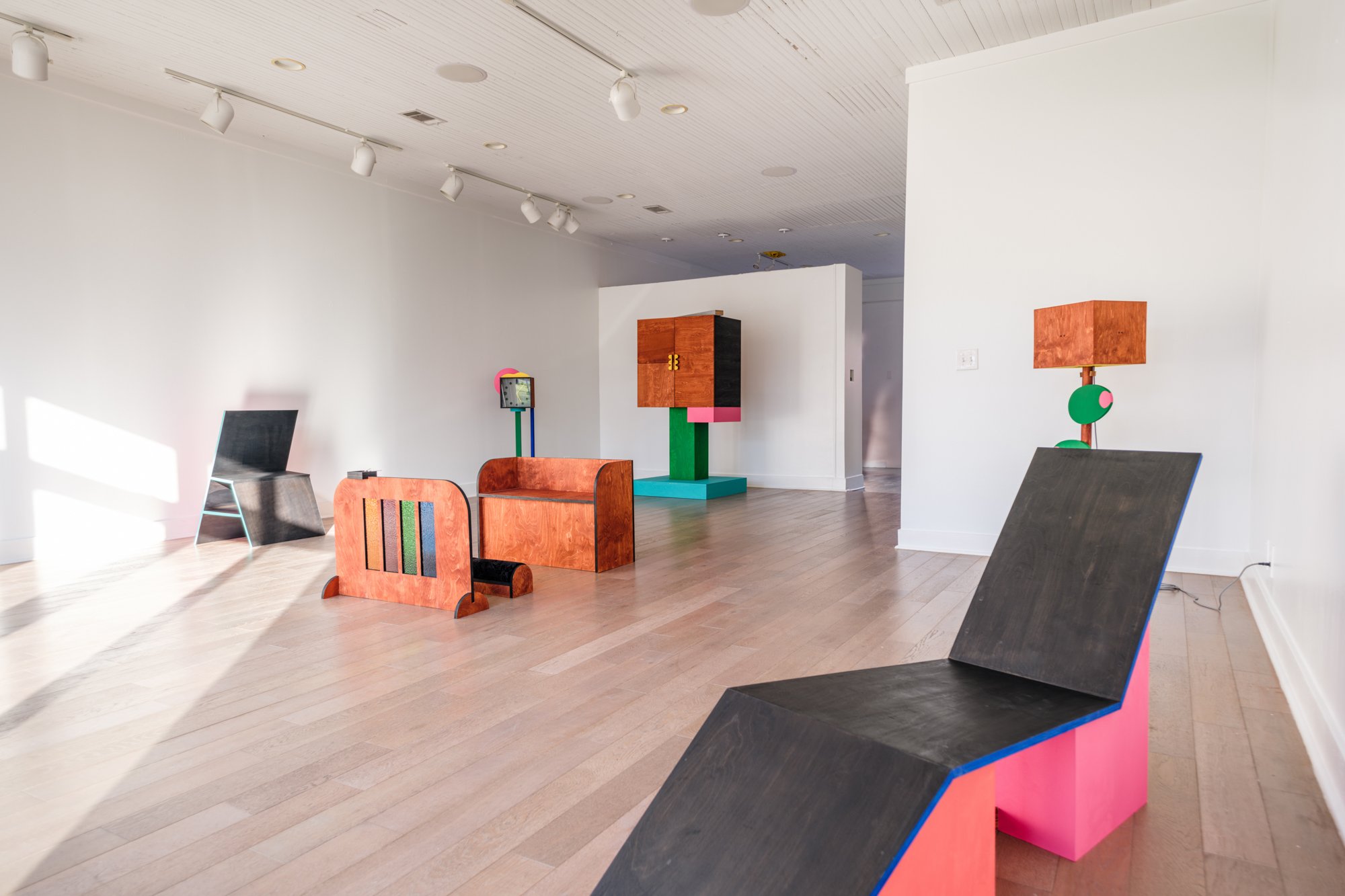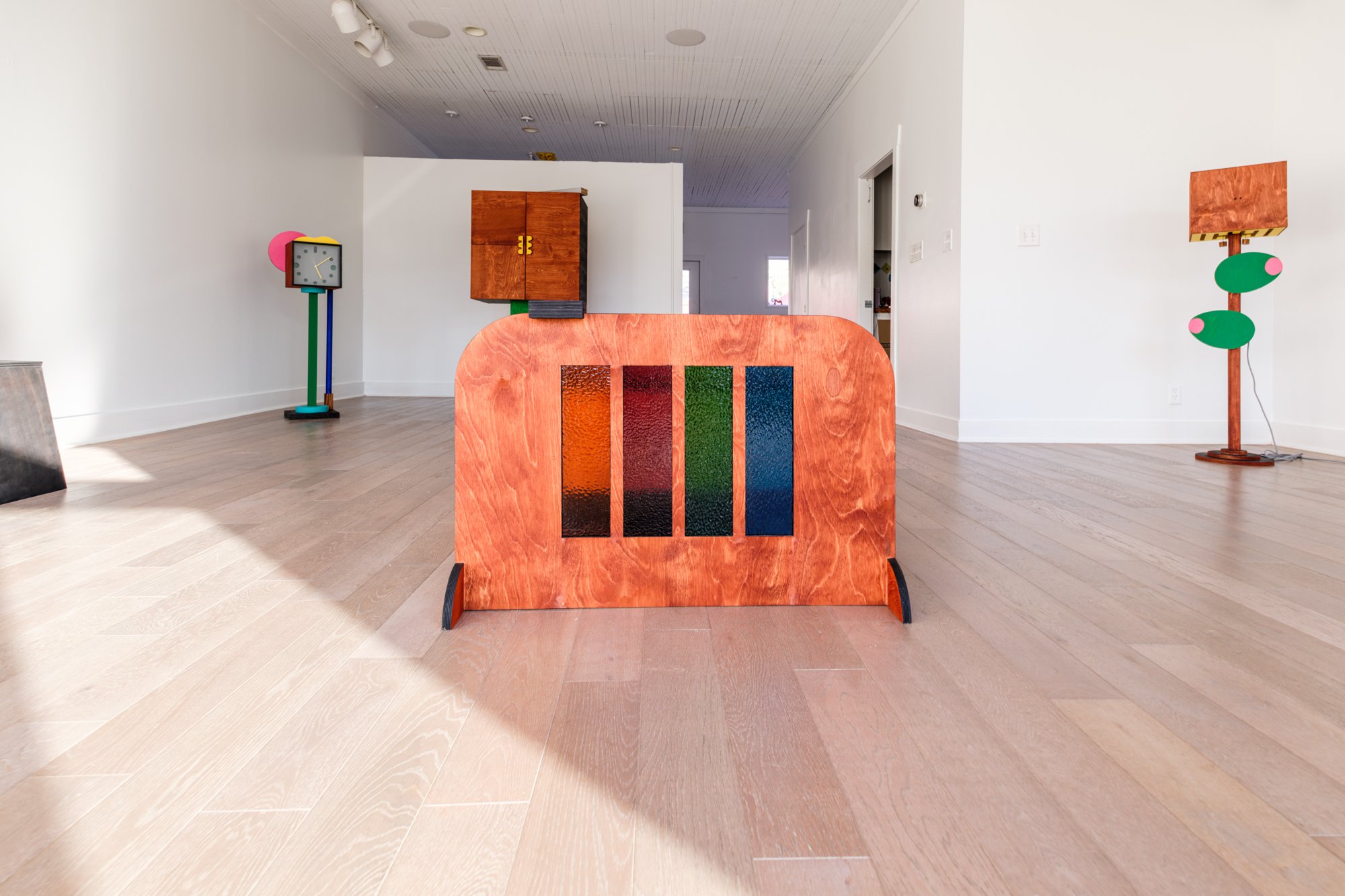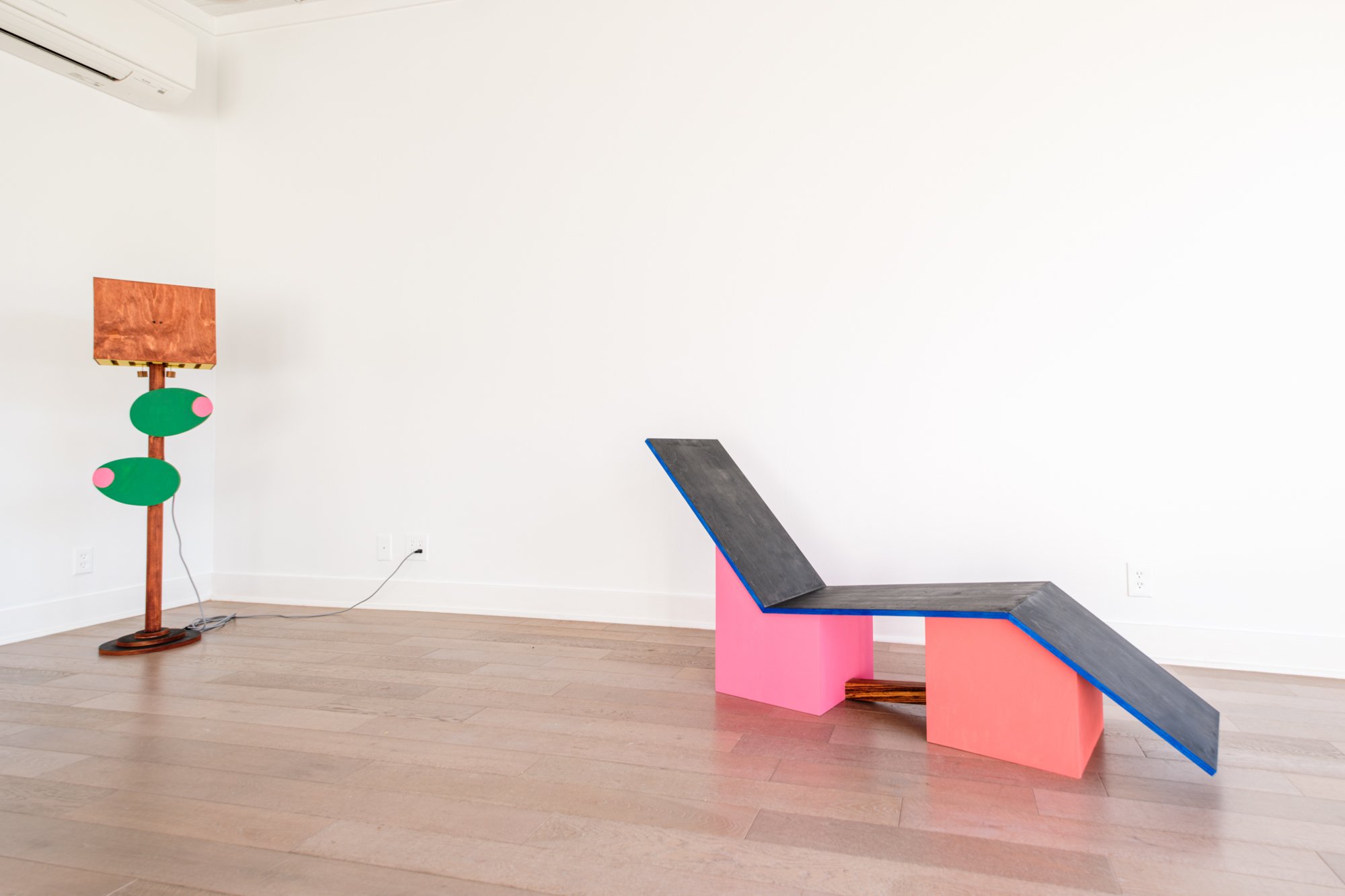Joey Postiglione
Pasta Objects
3 Day Pop Up March 14-March 17, 2024
For his inaugural exhibition, held at Martha’s March 14–17, Austin designer Joey Postiglione presents pieces from his furniture studio Pasta Objects. Inspired in part by the works of Ettore Sottsass, Shigeru Uchida, and Gerrit Rietveld, Pasta Objects offers a collection of furniture, comprising seating, lighting, and storage solutions, as well as a grandfather clock named for his own grandfather, Pasquale.
Though on first glance, Pasta Objects’ brightly colored objects may look to be a case of furniture governed by aesthetics, in reality, a story attends each piece. Take, for instance, the grandfather clock, so modeled after Postiglione’s Italian grandfather, or the accompanying lamp, Josephine, modeled and named after Postiglione’s Italian grandmother and namesake, who the artist was never able to meet but had an intimate sense of anyway, through photographs. She was a fashionable woman who could be found at club openings, martini and cigarette in hand, hence the lamp’s reference to the dirty martini. The cherry—or olive—on top of this proverbial cocktail is a pair of hanging cords, critical to the functioning of the lamp, that resemble Art Deco earrings.



For these works, rather than form following function, form follows emotion. In other works, this is also true, but function, then, does not merely follow along—rather, it is forced, such as in the case of the chair I Couldn't Say It To Your Face (attachment chair #1), which forces the users to turn their backs on each other, unable to see eye to eye or converse clearly. Postiglione fashioned this work, as well as its partner, Love Comes Back (attachment chair #2), after different relationship models and modes of communication. Love Comes Back (attachment chair #2) is too narrow for two users to sit side by side; rather, they are forced to sit, straddling, facing each other. If I Couldn't Say It To Your Face (attachment chair #1) disables communication, Love Comes Back (attachment chair #2) leaves nothing but communication available. To sit in it is to necessarily be in relation to each other, in confrontation even.
Also inspirational for Pasta Objects is Catholicism, an important part of Postiglione’s upbringing. This can be seen in I've Been Smoking Again, modeled after a Catholic pew, but with an ashtray where the bible and songbook holder would normally be. The stained glass, assembled in Mardi Gras colors, lights the user colorfully and brilliantly, as they kneel on black velvet, sourced and recycled from a vintage gown, smoking and praying to whatever god, goddess, or plural thereof that they choose.
Postiglione’s relationship to the memories that form his Pasta Objects is ambivalent, a relation that shows in the objects themselves. The impetus for this collection was an interrogation of life before and after his bipolar diagnosis; the confusion inherent to the “before” is heightened by fraught relationship dynamics within his own family and immediate surroundings. Each memory functions as a sort of “comfort memory,” a point of history to which he can look when things felt, more or less, okay, a moment that he can grab on to. But recipients of any diagnosis know that the “after” is one of ambivalence—of understanding the you before, but of staring down the long road of management. To look back at these “comfort memories” is also fraught, as their comfort throws into contrast the discomfort around them. These objects crystallize that contrast, teetering on the edge, like I Couldn't Say It To Your Face (attachment chair #1) and Love Comes Back (attachment chair #2), of comfort and growth.









